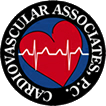Recovery Process
 The recovery process begins immediately after surgery. The following morning you will be out of bed in a chair. By the time of discharge you will be walking in the halls and able to care for your personal needs. As you recover, it is important to stay active. At first, this will simply mean trying to stay awake most of the day and progress to spending most of the day in a chair. We want you to walk three or four times daily. Initially, this walk may be only to the door, the next day out to the hall, and after that a steady progression. Pain medication is prescribed to be taken when needed. Ask for pain medication when you need it. Do not try to tough it out. This will only result in more pain which is then difficult to relieve.
The recovery process begins immediately after surgery. The following morning you will be out of bed in a chair. By the time of discharge you will be walking in the halls and able to care for your personal needs. As you recover, it is important to stay active. At first, this will simply mean trying to stay awake most of the day and progress to spending most of the day in a chair. We want you to walk three or four times daily. Initially, this walk may be only to the door, the next day out to the hall, and after that a steady progression. Pain medication is prescribed to be taken when needed. Ask for pain medication when you need it. Do not try to tough it out. This will only result in more pain which is then difficult to relieve.
After leaving the Intensive Care Unit, there will be some adjustments to make. It is not uncommon for patients in an intensive care setting to become confused or disoriented. This is easy to understand in light of the anesthesia received, the pain medications and being in a setting where it is always day with maximum activity all around you. The best cure for the patient is familiar faces. It is good to remind the patient where he/she is, what has happened, and talk about familiar subjects.
Mood Changes
 Recovery from surgery is somewhat like a rollercoaster ride. There will be days when you will feel exceptionally well and strong. Other days you may feel washed out. Don’t let these changes overly disturb you. It is not uncommon to cry or to become depressed. These are all a part of the recovery process.
Recovery from surgery is somewhat like a rollercoaster ride. There will be days when you will feel exceptionally well and strong. Other days you may feel washed out. Don’t let these changes overly disturb you. It is not uncommon to cry or to become depressed. These are all a part of the recovery process.
Changes in Heart Rhythm
After surgery, many patients will develop a fast heart rhythm called atrial fibrillation. This is usually controlled with medication. This may prolong your stay slightly while your rhythm is regulated. Most patients will only need to stay on these medications for one or two months; then, your family doctor can probably discontinue them.

